We Are Eco
Here at HoW College, looking after the local area and doing our bit to fight climate change is of vital importance to us. We want to encourage everyone to make more environmentally conscious choices and be more eco-friendly at every opportunity possible; that's why we've set up this page to share what we've been doing to lead by example, as well as to share some tips and tricks from our own staff and students on how to make more environmentally conscious choices.
On the page below you will be able to hear about our latest updates on our journey with Plastic Free Communities (PFC) for Worcester and Redditch, as well as what we're doing internally to reduce our waste and recycle. We have also taken the time to share some helpful tips on supporting local wildlife (such as bees and hedgehogs), and we've shared suggestions and resources for schemes that everyone can get involved in to reduce their household waste through Terracycle. Check back for regular updates on our ongoing Eco journey!
Check out our Get to Green Action Plan here
Plastic Free Communities
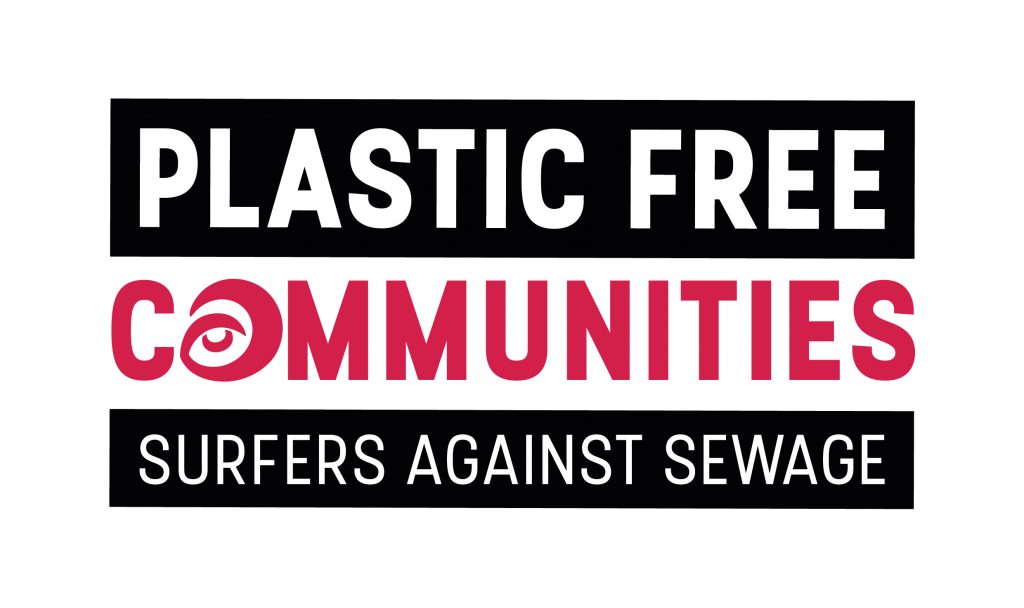
As some of those within our College community may already know, HoW College became the flagship employer for Plastic Free Worcester in 2018, and as of August 2020 we also became the first community ally for Plastic Free Redditch.
The big aim for Plastic Free Communities (PFC) is to reduce the presence of single-use plastics and replace them with sustainable alternatives. Part of the criteria for becoming part of the PFC and gaining plastic free status involves finding a flagship employer, which is where HoW College comes in. In 2018 our very own Emma Hunt participated in a litter pick along the River Severn and met an individual who was putting the application together to get Worcester 'Plastic Free' status. The 'official' criteria for the flagship employer needed was as follows;
"Plastic Free Worcester is seeking a flagship employer to collaborate with because of the size and therefore impact a flagship employer can have both internally with its employees and externally with contractors and other businesses through inspirational attitudes and actions. The award scheme also recognises the important role flagship employers need to play and have made it mandatory for at least one flagship employer to pledge to reduce single-use plastic in order for the community to be given plastic free status."
HoW College fit the bill and as a result we were required to make 3 changes regarding our use of plastic - which luckily we were already beginning to do. We met the criteria by:
- All staff being given re-useable cups
- No more single use plastic cups being used for the water coolers
- Refectories switched their disposable products to Vegaware which is all made from plant-based biodegradable products
Following this, our 'Plasterine' character was created in an email footer which is automatically added and sent on all external emails to further emphasize our stance as an organisation on single-use plastics. Our All Saints building also became a public collection point for crisp packets (as part of the Terracycle scheme) and there are boxes in all cafes for collections on the Worcester campus too (although this is currently on hold due to the pandemic). As a result, Worcester earnt their official 'Plastic Free' status in September 2019. PA to the Principal, Emma Hunt, currently sits on the Plastic Free Worcester steering group, and our own Assistant Principal, Peter Robinson, has recently taken over as Chair of the Worcester steering group.
As well as PFC Worcester, we have recently become the first community ally for Plastic Free Redditch and are set to start the process in helping Redditch to earn their official 'Plastic Free' status. We'll be posting our PFC Redditch updates as and when they happen, so watch this space!
HoW We're Going Green
Here at HoW we've been working very hard over recent years to become more eco-friendly, and we wanted to take the time to update everyone on all things green at HoW.
You may have seen the launch of our latest campaign which came with a whole array of new merchandise. Not only are our brand new prospectuses made from recycled paper but they can be recycled when they're finished with! We also have our prospectuses available online to encourage individuals to access the digital copy. As well as new prospectuses, we have canvas bags, biodegradable pens made from sugar cane, wildflower wristbands and our reusable water bottles and coffee cups (currently on hold due to COVID-19). Not to mention all staff have been given the opportunity to access two reusable face coverings in order to reduce mask wastage during the pandemic.
Within the canteens at HoW College, the ambition is to reduce the use of single use plastics within cafes, reduce plastics within deliveries, source suppliers who share the same values and increase and encourage recycling. Some of the brilliant ways in which this is being worked towards are as follows:
- We ask suppliers to deliver in recyclable or reusable containers to reduce plastics
- We buy British as much as possible
- Local suppliers are being utilised as much as possible in order to reduce our carbon footprint (this is for items such as fruit, veg, dairy and meat), and all suppliers HoW are currently working with have to present their environmental policies to us so that are using those who act responsibly. For example, our sandwich supplier 'Simply Lunch' use local suppliers to them, are reducing plastics on packaging, have a zero waste policy, they donate any leftover food to the homeless, work alongside the soil association, looking to reduce the CO2 produced by trading and have changed all lighting in their factory and offices to LED.
- We continue to use Vegware, a plant-based product with zero plastic, for our disposables. We will be switching to an alternative recyclable option however as Vegware still needs to go into the general waste as we currently don't have a way locally to 'close the loop'; however, whichever option we select will be recyclable and plastic free.
- We are part of Plastic Free Redditch and Plastic Free Worcester
- We stock wooden stirrers instead of plastic
- We are currently using the last of our stocks of plastic straws which we will need to use up before July 3rd 2021 (in line with new Government ruling); we will do so by donating these to the College Arts department for resources and are also looking to donate some for the health care as they are currently still needed in this area. We will then be introducing paper straws.
- Our Estates teams and canteens are currently trialing a food waste programme with Violia to ensure waste going to landfill is reduced and alternative means are explored.
As everyone can see, we've been incredibly busy implementing as eco-friendly protocols and products as possible to do our bit to help the environment. We would like to say a very big thank you to all staff who have been involved in any of the brilliant changes listed above.

How to 'Bee' Eco in the Garden
Did you know? According to the Woodland Trust, bees play an important part in maintaining our planet. Where trees and woods are essential to filter our air, bees are vital to both pollinate the food we need to survive and pollinate many of the trees and flowers that provide habitats for wildlife. According to the Food and Agricultural Organisation of the United Nations (as of 2018), approximately 80% of all flowering plants are specialised for pollination by animals, mostly insects (which includes bees). Pollination is crucial because many of our vegetables, fruits and the crops that feed our livestock rely on it to be fertilised.
Unfortunately, there are many factors which have had a negative effect on the population of bees in the UK, including pesticides, parasites and diseases, habitat loss, and climate change. Climate change and the extreme weather disrupts bee nesting behaviour and alters the normal seasonal timings, meaning flowers may bloom earlier or later than expected. Whilst the planting of more trees is helping to mitigate some of the effects of climate change, it is still a serious issue that could prove deadly for many of our bees.
To give our bees a helping hand and ensure their populations can thrive again, we can all do our bit by helping to create some bee-friendly habitats. No matter what space you have available, there are lots of trees, shrubs and flowers which can be planted to support bee populations. For more information on these plants, click the drop down buttons below! To learn more about bees, insects, and wildlife, visit the Woodland Trust or The British Bee Keepers Association.
Trees
According to The British Bee Keepers Association, the following selection of trees are great for bees, but make sure you check in a good book first for exact sizes! As these can vary greatly depending on soil, altitude, and other environmental factors.
- Acacia (tender, winter flowering)
- Alder (early source of pollen)
- Almond (profuse nectar producers)
- Apple (good nectar producers)
- Blackthorn (white flowers, early source of pollen)
- Chinese bee tree (less common tree, profuse nectar source, small and strongly scented)
- Crab Apples (spring)
- Eucalyptus (late summer)
- Hazels (valuable source of pollen)
- Hollies (evergreen, attractive to bees)
- Lime (can supply large quantities of nectar but can be erratic)
- Maples (decorative Japanese rarely flower in the UK, but larger species are great for bees)
- Peach & Nectarine (early flowering, good nectar producer)
- Sycamore (valuable nectar source)
Shrubs
According to The British Bee Keepers Association, the following selection of shrubs are great for bees and can be planted in small and large gardens; such plants can also be found in the wild.
- Blackberries
- Blueberries
- Buddleia
- Ceanothus
- Clematis
- Deutzia
- Fuchsia
- Gooseberries
- Hydrangea
- Mahonia
- Rhododendron
- Rosemary
- Wisteria
Flowers
According to The British Bee Keepers Association, the following list contains the top 10 flowers for attracting bees in small gardens.
- Cosmos
- Crocus species
- Echinacea
- Galanthus nivalis
- Hellebore
- Lavender species
- Rudbeckia laciniate
- Salvia species
- Sedum species
- Verbena species
HoW College is signed up to the Hedgehog Friendly Campus initiative, which is a national accreditation programme funded by the British Hedgehog Preservation Society (BHPS). Universities, FE colleges and primary schools across the UK are urged to take part, completing activities that help to bring hedgehogs back from the brink.
We are proud to announce that HoW College has been awarded Bronze Accreditation as a Hedgehog Friendly Campus!
To achieve this award, we had to complete 10 criteria from a list of 22, so with the help of staff and students we have litter picked, we have installed bug houses and hedgehog houses, we have promoted the scheme on our socials and our website, our facilities team have been updated on what to do if they find a sick or injured hog – the list goes on!
We are now working towards Silver Accreditation.
How to Help Hedgehogs
The Hedgehog population of the UK has fallen dramatically – from around 30 million in the 1950s to less than 2 million today, and on 30th July 2020 the hedgehog was included in the International Union for the Conservation of Nature’s Red List for British Mammals, which specified that the hedgehog is now vulnerable to extinction. As a result, two of our lovely staff members, Janet Fryer and Rebecca Aldridge-Beeston, put together the following information to help highlight some ways in which we can all do our bit to help the hedgehog population in our local area.
There is no single cause to the reasoning behind hedgehog decline, as populations in rural and urban habitats experience different pressures and changes; however below are some contributing factors that can have an impact on hedgehog numbers.
- Pesticides, herbicides, and fertilisers, as these can poison hedgehogs and reduce numbers of invertebrates, which are a key food source
- Intensification of farming and removing hedgerows, which leaves less vital area for hedgehogs to nest
- Housing developments lacking access points for hedgehogs, causing loss of nesting and foraging habitat
- Garden injuries (strimmers, netting, dog attacks)
- Road casualties
A quick way to help the hedgehogs is to let your garden be more natural! Many people like to have tidy gardens and remove any overgrown areas or dead wood piles, but such environments act as vital shelters for hedgehogs and many other wildlife species. Some gardens are being lost all together by people replacing lawns with decking, driveways, or artificial grass, which significantly reduces foraging areas. If you are lucky enough to have hedgehogs in your neighbourhood, there are ways to help them with shelter and food and encourage these timid, nocturnal creatures into your garden - just take a look below for some more tips!
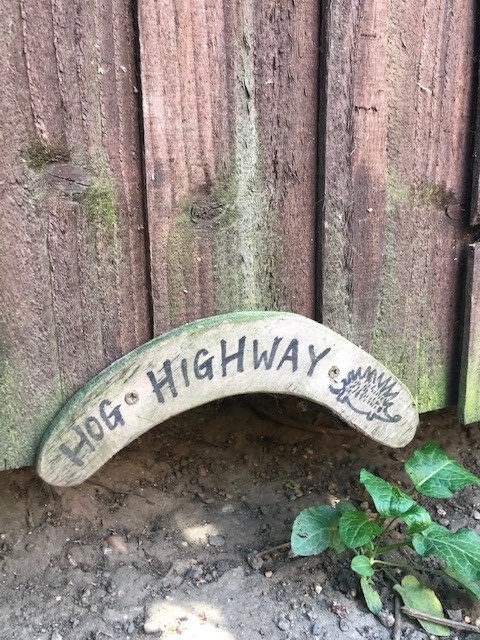
Access to Your Garden
- Make a way for the hedgehogs to gain entry to the garden by leaving a gap under a gate or fence panel, or cut a hole (about the size of a CD). Even if you have concrete gravel boards, still cut the hole in the bottom of the fence above them (hedgehogs are excellent climbers) or make a tunnel underneath
- Encourage neighbours to do the same – create a ‘Hedgehog Street’. Hedgehogs can go up to 2 miles in a night so would love a way to roam through multiple gardens
- Leave a part of the garden untouched to grow wild, it will provide food (beetles, insects and caterpillars) as well as giving shelter to the Hedgehog
Feeding Hedgehogs
- Hedgehogs do not eat bread and milk, contrary to old wives’ tales - they cannot digest it. Do not put out nuts, seeds or mealworms as they do not get the nutrients they need which can lead to weak, easily-broken bones (put these up high for birds, not on the ground)
- Put out some small dog or cat biscuits instead which gives hedgehogs the protein they need. They are good for teeth and contain the same nutrients as more expensive Hedgehog food
- Put out a shallow dish of water – Hedgehogs only have short legs and necks so they cannot reach into a deep dish. A ceramic dish is heavy enough not to get tipped over. Water in hot weather will also be of benefit to birds and other small garden visitors who might have difficulty finding a source
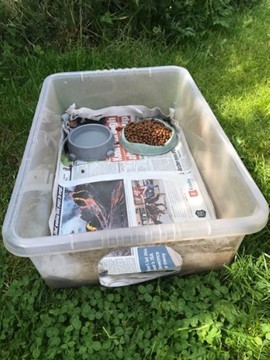
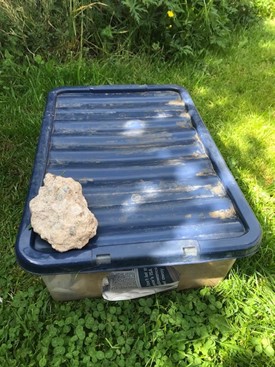
Shelter for Hedgehogs
A pile of wood in an untouched corner of the garden will make a good shelter, but there are also plenty of plans available online for making a hedgehog home, even a plastic box can be used if it is suitably adapted. Ready-made homes can be bought but check what to look for in the links at the bottom of this section below before buying.
Keeping Hedgehogs Safe
- Be careful when mowing or strimming as this can cause serious injury to a hedgehog hiding in long grass
- If you have a pond, put rocks or plants close to the edge so that a hedgehog can climb out if it falls in. Make it with sloping sides or create a ramp to allow escape
- Cover open drains in case one falls in and cannot get out
- Tidy away loose netting as they can get caught up
- Check bonfire wood or piles of leaves before lighting it in case a hedgehog has made a home in there
- Keep an eye on dogs let out in the garden at night in case they find and attack a roaming hedgehog
- Try not to use slug pellets as they might get eaten by hedgehogs, and avoid too many chemicals to kill pests (hedgehogs might eat a poisoned bug)
- Drive carefully at night when hedgehogs are roaming and might be crossing the road
Helping Hedgehogs in Need
- If you see a hedgehog out in the day, it is very sick and looking for warmth to avoid hypothermia. They are nocturnal so only come out in the day as a last resort. Get it to a hedgehog rescue as soon as possible – do not try to care for it yourself as it is illegal to keep a protected wild animal
- A hedgehog should be more than 600g to survive hibernation – if you see a small one out in the autumn it may be a youngster and should get to a rescue centre so they can help it survive through the winter
Local rescue centres are at www.willowshedgehogrescue.co.uk (they are a charity so would appreciate any donations if you need their help with a sick hedgehog) and https://warwickshirehedgehogrescue.org/
Helpful Hedgehog-related Links:
www.hedgehogcabin.info – Lots of resources and information and you can follow them on Twitter: @HedgehogCabin
www.hedgehogcabin.info/making-a-feeder – How to make a feeding station to keep cats and foxes out
www.wildlifetrusts.org/actions/how-build-hedgehog-home – How to make a Hedgehog Home
www.britishhedgehogs.org.uk – National charity for welfare and conservation of Hedgehogs
www.hedgehogstreet.org – Campaign for Hedgehog streets in neighbourhoods and in new-build estates
www.rspb.org.uk/birds-and-wildlife/advice/gardening-for-wildlife/homes-for-hedgehogs/ – Lots of information from the RSPB relating to hedgehogs

How to Benefit Bats
In the UK, bat populations have declined considerably over the last century, and bats are still under threat from building and development work that affects roosts, loss of habitat, the severing of commuting routes by roads and threats in the home including cat attacks, flypaper and some chemical treatments of building materials.
Bats play an important role in many environments around the world. Some plants depend partly or wholly on bats to pollinate their flowers or spread their seeds, while other bats also help control pests by eating insects. In the UK, some bats are ‘indicator species’, because changes to these bat populations can indicate changes in aspects of biodiversity. Bats might suffer when there are problems with insect populations (because our bats feed on insects) or when habitats are destroyed or poorly managed (for example, some bats only live in large woodlands).
Fun 'Bat Facts'!
-
- All UK bat species use echolocation to navigate and hunt for insects in the dark.
-
- Things we get from bat-adapted plants include dates, vanilla, bananas, breadfruit, guavas, Iroko timber, balsa wood, sisal, Tequila and chewing gum!
-
- Bats usually only have one baby a year and can live for up to 30 years
-
- Bats are more closely related to humans than they are to mice.
-
- Bats are the only true flying mammals in the world.
-
- The majority of the world's bats eat insects - just like British bats. In the tropics bats also eat foods like fruit, flowers, frogs, fish, blood, even other bats.
-
- A tiny pipistrelle can eat up to 3,000 insects in a night.
If you would like more information on bat conservation, follow the link below to the Bat Conservation Trust https://www.bats.org.uk/
Digital Sustainability

Did you know that only 8% of FE institutions surveyed, have taken actions to ensure that digital sustainability is covered in staff and student training programmes?
Source: Digital sustainability in tertiary education: trends, challenges, and sector insights - Jisc
Digital sustainability means using technology in a way that's better for the environment and helps reduce our impact on the planet. It's about being smart and responsible with how we create, use and dispose of digital devices and services.
This includes:
Reducing e-waste by recycling or repairing old devises
Saving energy by turning off unused devices and using power-saving settings
Using eco-friendly apps and tools that consume less energy
Managing data and storage wisely to lower energy usage
But did you know that Artificial Intelligence (AI) plays a big part in this too?
Watch this video to find out more: The Environmental Impact of AI
Making small changes in how we use technology can make a big difference for the planet!

Terracycle Schemes
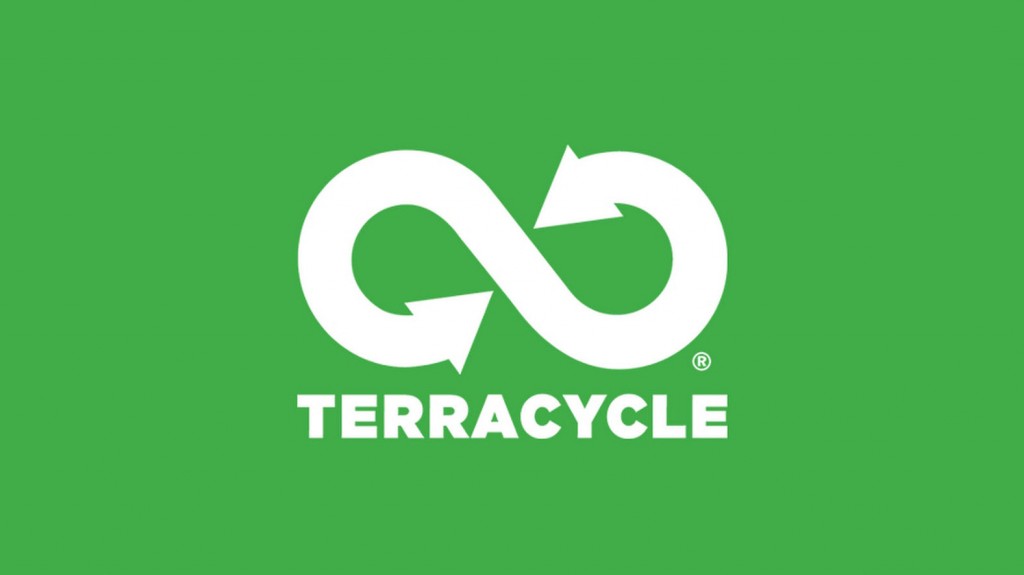
Terracycle are an incredible organisation who partner up with many different companies to offer recycling schemes. Currently on their website you will find recycling schemes for: laundry items, Ella's kitchen packaging, dental products, makeup products, water filters, beach plastic schemes, bread bags, Carex items, cheese packaging, coffee packaging, confectionary packaging, kids games, nitrile gloves and PPE (KIMTECH), marigolds, pet food packaging, medicine packaging, hygiene packaging, ring carriers, pens, balloons - the list goes on and on!
We've selected a few from the Terracycle website to feature below alongside some alternative products that can help you in reducing your waste. For more information and to visit the Terracycle website, click here.
Contact Lenses
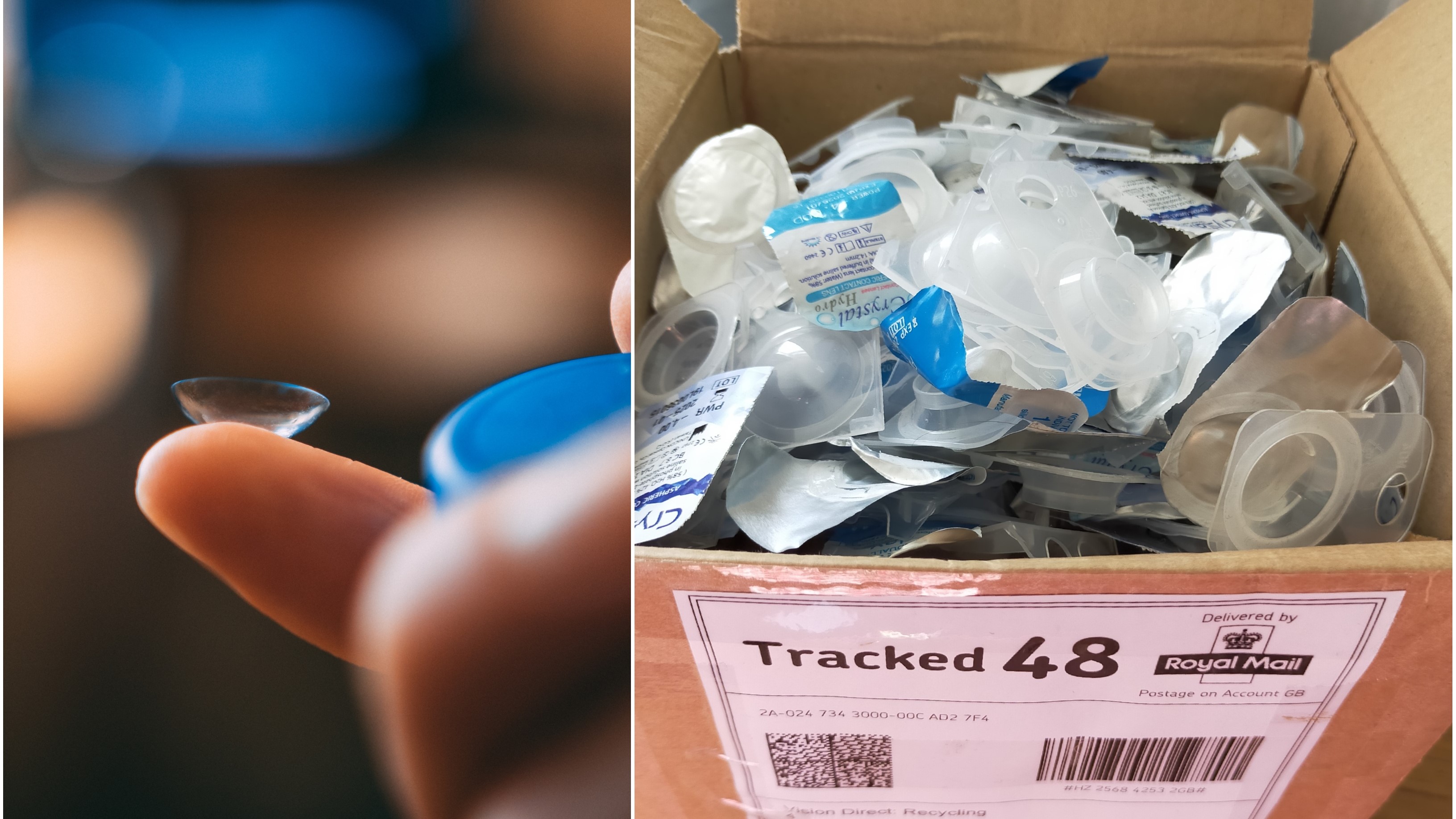
Many of us use contact lenses on a daily basis, but not many people may know that Terracycle and Acuvue have partnered up to create a free recycling programme for any brand of soft contact lenses and blister packs! There are over 600 participating Boots Optician stores and numerous independent opticians taking part throughout the UK. Even with the current pandemic, many are still participating and a postal scheme is also available. If you are unable to currently participate due to the pandemic they are still asking you to continue collecting! They can accept your recyclables at a later date. Just click here for more information.
Pens and Stationery
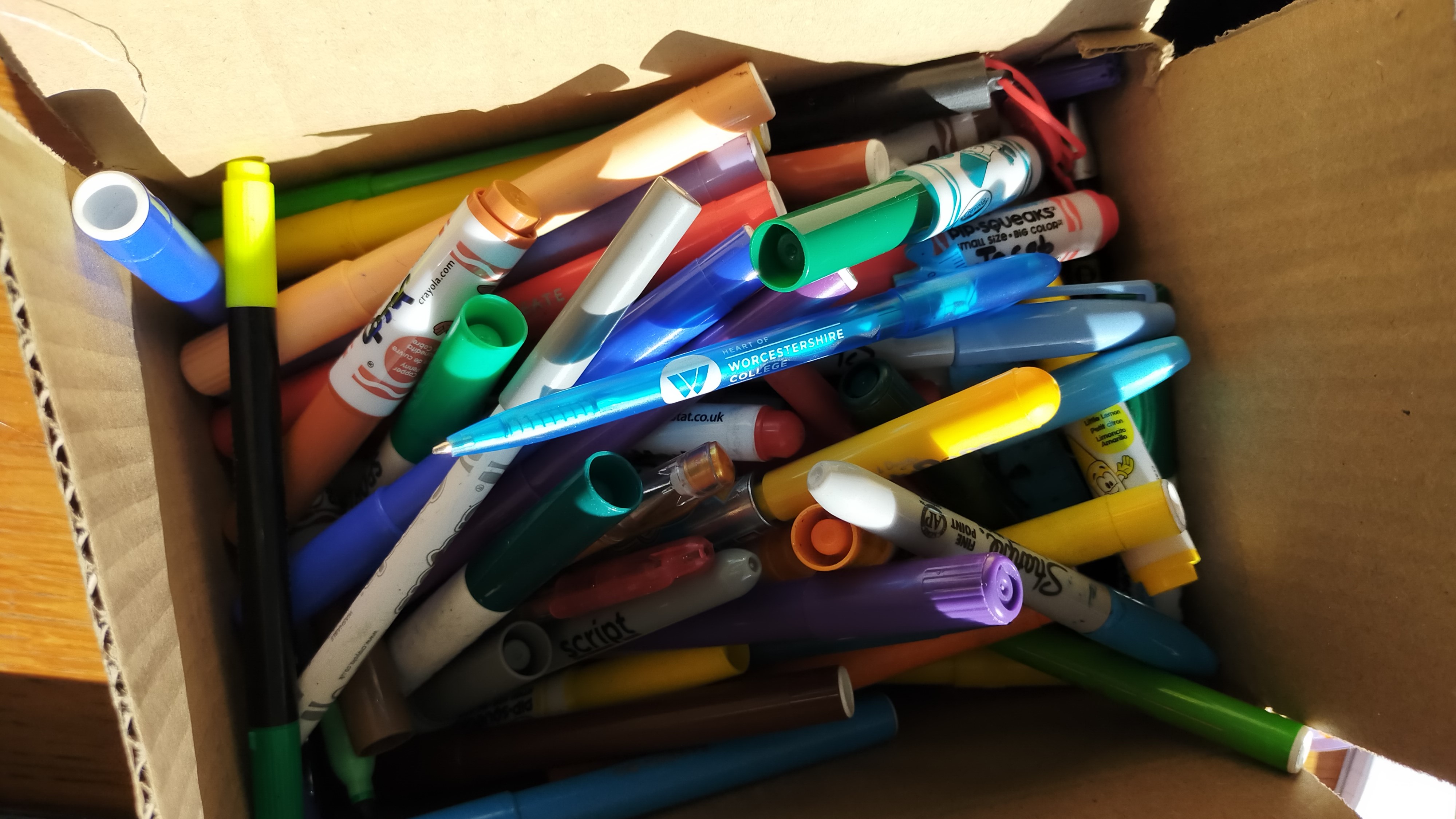
Bic and Terracycle have partnered up to create the writing instruments recycling programme! From markers and highlighters, to pens and correction fluid pots; whatever the brand, they'll take it! There are numerous drop-off locations nationwide and ways to get involved, so why not click here for more information on how you can more ethically dispose of your used writing instruments?
Beauty Products
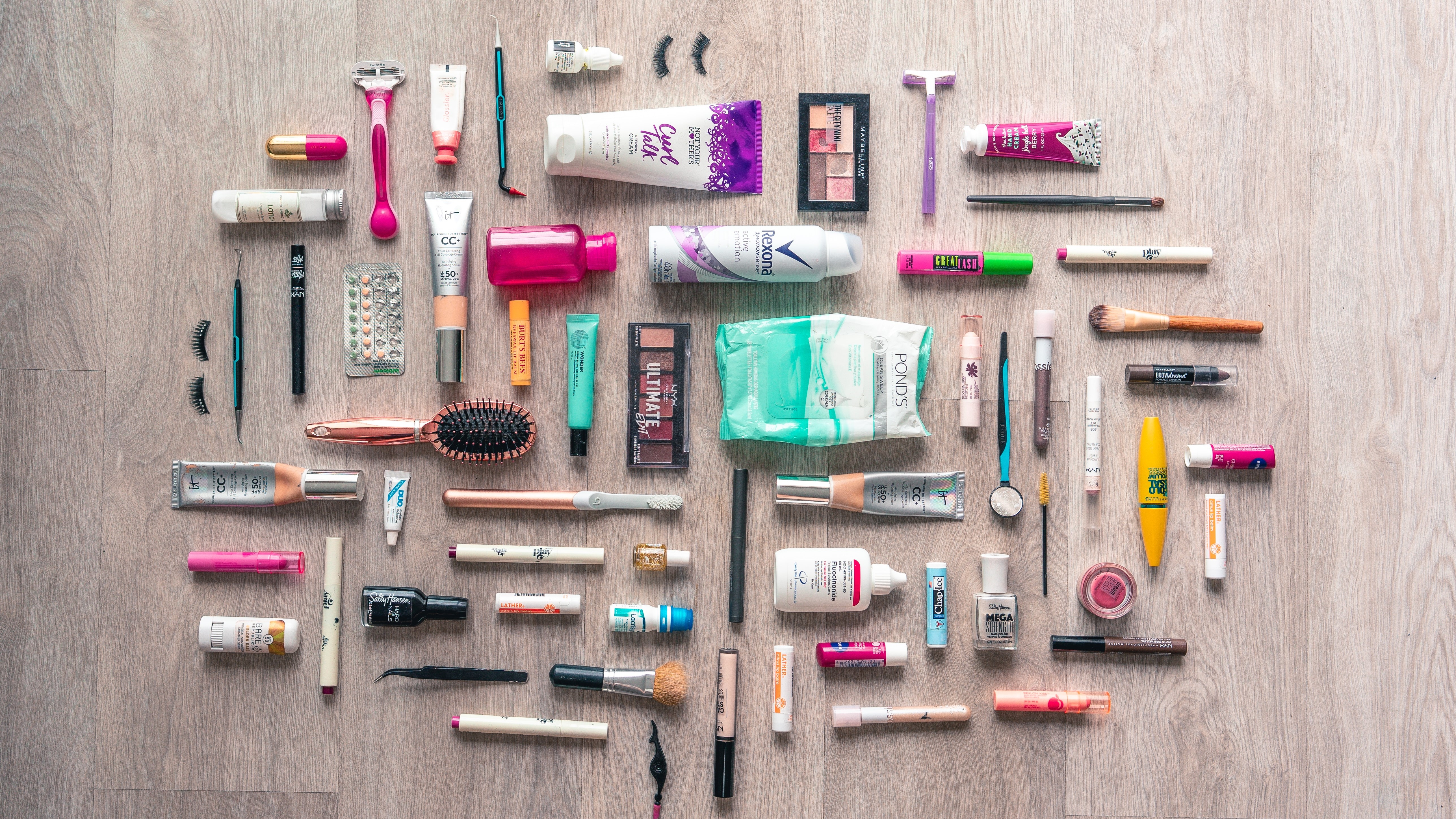
Did you know? A lot of animal shelters use old mascara wands to help care for baby animals! According to many organisations, the wands can be used to remove fly eggs and larva from the fur.
There are many shelters up and down the country and internationally who appeal for mascara wands at various points throughout the year, so why not take a look online and see if there are any you can help? Start collecting your old mascaras now to make a difference!
If that's not enough, Maybelline and DECIEM have partnered with Terracycle to create two makeup recycling schemes that between them accept a majority of beauty packaging; from foundation, mascara and eyeshadow, to lipsticks, glosses and eyebrow kits. These schemes accept most items!
Just click here to find out more about the Maybelline recycling scheme, and click here to find out more about the DECIEM recycling scheme.
Inhalers and Batteries
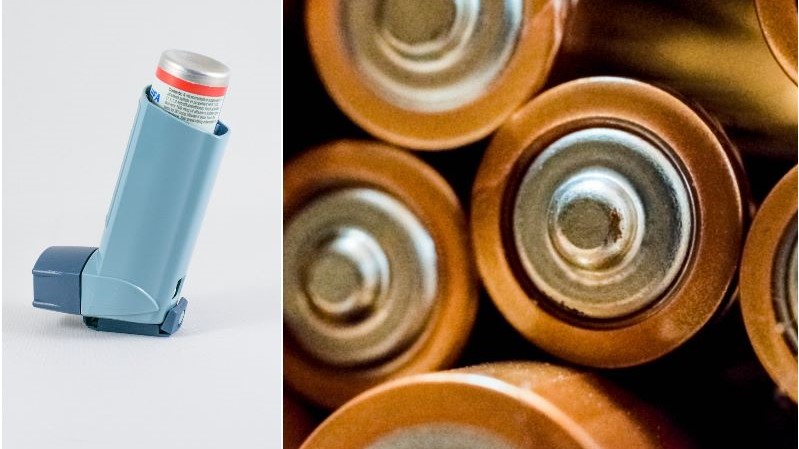
Did you know? Superdrug have an inhaler recycling scheme! Many people tend to simply bin their old inhalers, but Superdrug have over 200 pharmacies willing to take them off your hands. Superdrug state that:
"Both plastic and aluminium parts of inhalers are recycled and used in new products including garden furniture, plastic bottles or car parts. Waste that is non-recyclable is transformed to provide either electricity or heat through the ‘waste to energy’ process via incineration."
Superdrug even recycle old batteries which can often cause soil and water pollution which effects our eco systems and wildlife due to leaching chemicals, however, materials in batteries can be recovered and recycled! Alternatively, many have also turned to rechargeable batteries in order to reduce waste even further.
Why not visit their website by clicking here for more information and to find your nearest drop-off point?
Coffee Products

Whether you make coffee with fresh beans, from grounds in a bag/jar or out of a pod, there are ways to recycle the packaging!
From Dolce Gusto and Tassimo, to Nespresso and Lavazza eco caps; many companies already have recycling schemes in place that are easy to participate in through drop-off schemes or via post, and you can find them by visiting the company website or by a quick Google search! However, did you know you can recycle the refill packaging, jar lids and pods through Terracycle too? Just click here for more info!
Another method to reduce waste from coffee capsules can be through reusable coffee pods. These can be purchased on sites such as Amazon and eBay, and you can get plastic and metal versions with varying life spans. The idea is, you can grind your own coffee beans, fill the pods (made to fit many different coffee machines now), and then wash them when you're done, ready to re-use. Why not have a look online today?
Bottle Tops
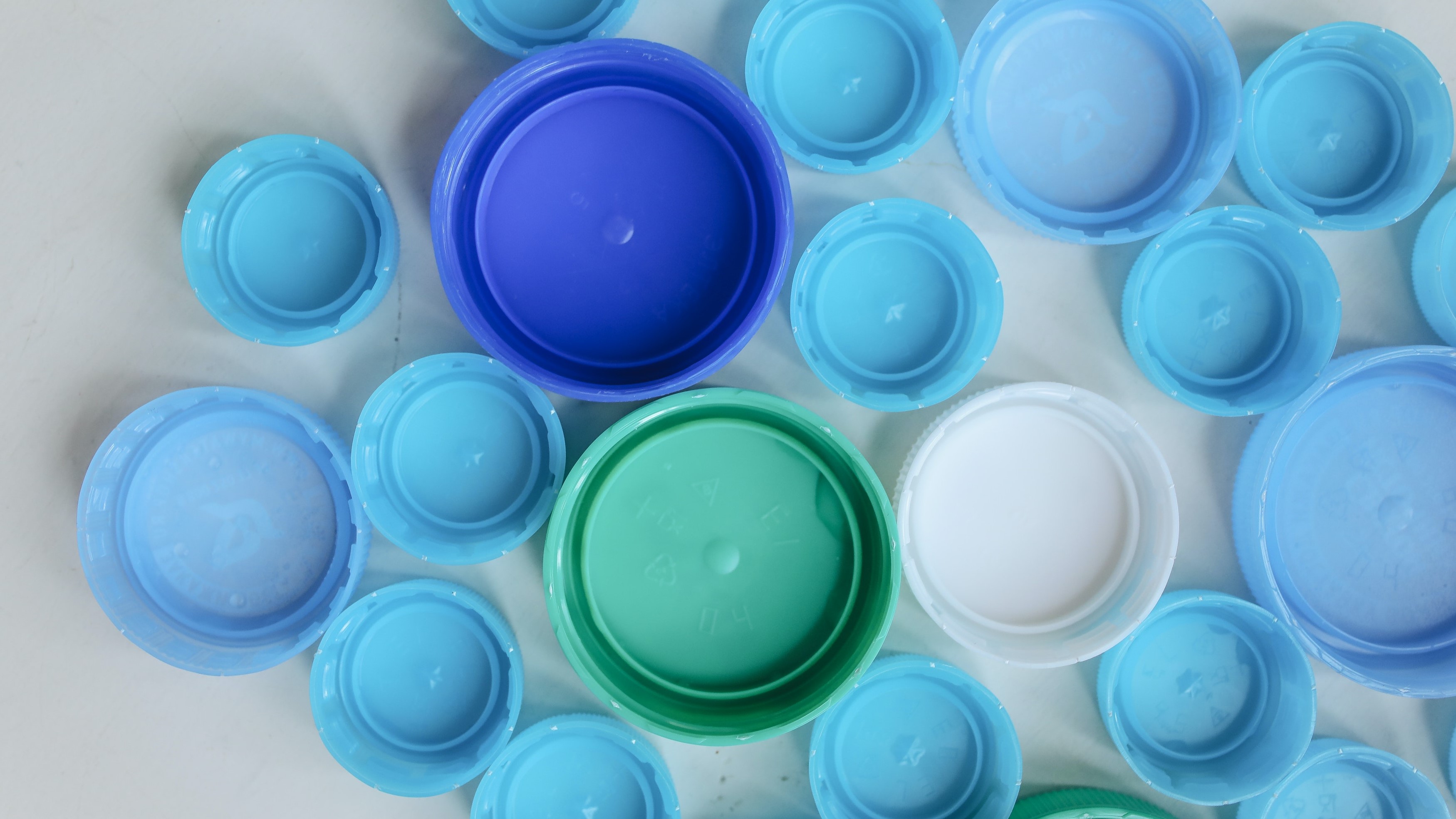
It's reported that each year plastic bottle tops are often one of the five biggest contributors to plastic pollution, so we want to encourage everyone to change this!
Companies such as Lush will allow certain types of bottle tops to be taken into stores where they are taken off to be recycled and turned into items such as waterproof furniture. Some organisations collect bottle tops to raise money for charitable causes, and often the bottle tops are still recycled through this as well as helping to raise money for those in need.
Recycling of bottle tops can be dependent on your local council recycling rules as well as what schemes are going on at different points in the year; for that reason we suggest collecting your bottle tops and doing a search in your local area to see what's available to you!
Dental Items
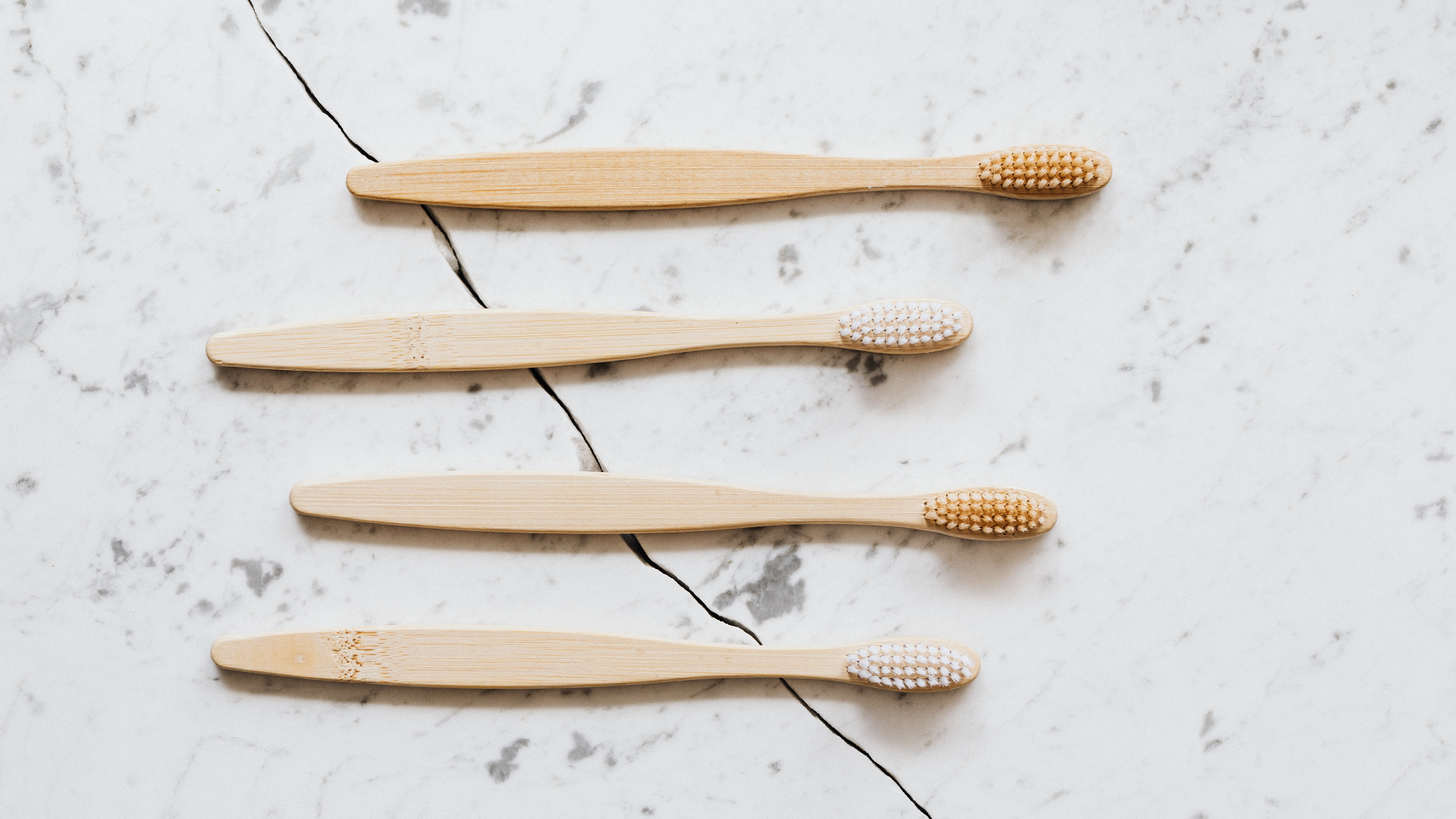
Many of us create a lot of plastic waste through the use of dental hygiene products, so we wanted to introduce everyone to some great recycling schemes and new ways to reduce plastic waste.
Both Colgate and Phillips have developed recycling schemes with Terracycle which allow us all to reduce our waste from dental care products. Colgate accept ALL oral care products (regardless of brand) to their recycling scheme; from toothpaste tubes and caps and plastic toothbrushes, to plastic outer packaging and electric tooth brush replacement heads, whatever it is, they'll take it! Just click here to find out more.
Phillips accept lots of different types of dental care which you may have previously just chucked in the bin; from electric toothbrush heads and electric flosser nozzles, to flossing sticks, interdental brushes and floss containers, they'll take it all! Just click here to find out more.
Another great alternative to plastic dental items are those made from bamboo! You can now purchase bamboo toothbrushes, floss and toothpicks, all made from sustainably sourced bamboo and delivered in biodegradable packaging. You can purchase subscriptions that come straight to your door, you can buy large family packs online, or you can buy individual items which have now started to be stocked in the likes of Superdrug. Why not take a look and give it a go the next time you need some new dental products?
Razors
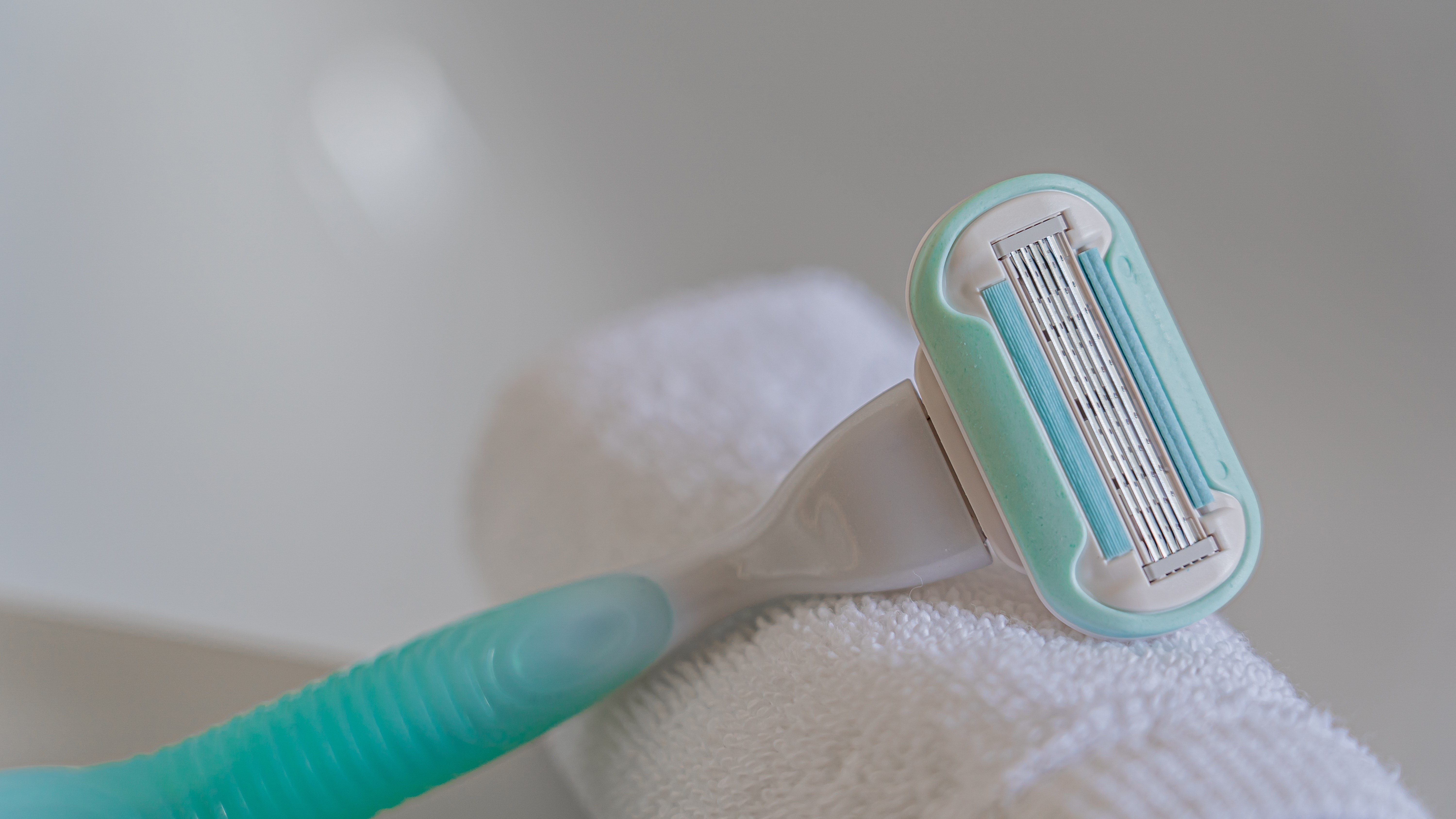
Many people will finish their razor blade and simply chuck it in the bin or recycling, hoping that it will somehow be recyclable, but there's no need to do this anymore! Gillette have teamed up with Terracycle to create a razor recycling scheme! You simply collect your razors, request an envelope, and send them off through the post; it's that simple! For more information on this scheme click here.
There are also other companies who are pushing the more eco-friendly initiative such as Friction Free Shaving (FFS). FFS offer a razor subscription straight to your door that you're completely in control of and can cancel anytime. You get a free gift each delivery, their products are cruelty free and they have vegan options. They use sustainable materials such as sugar cane for elements of their packaging, AND if that's not enough you can collect your razors in the package they arrive in and send them straight back to be recycled - amazing! For more information, click here.
Period Products
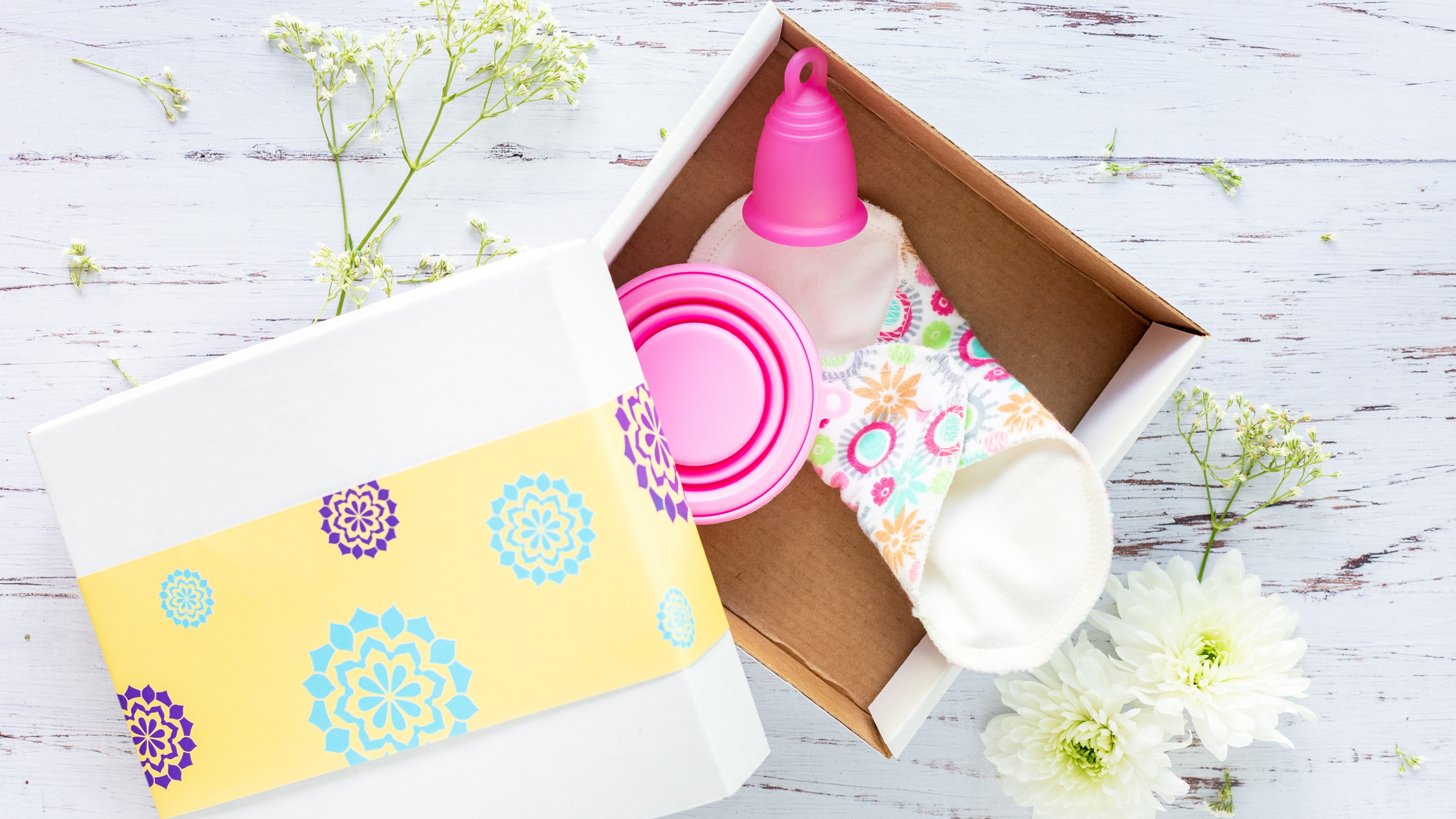
There are lots of different ways you can be more environmentally friendly when selecting your period products - all while saving you money!
Some of the latest options aren't for everyone, but they're definitely worth a mention. You can purchase reusable pads, underwear and even menstrual cups now to be eco-friendly. Such products can be washed, reused and therefore not only save you money but give you zero waste! However, if that's not quite for you then there are some brilliant companies now creating biodegradable and ethically sourced period products.
Callaly - not only are these products biodegradable and made from ethically sourced materials, but they are delivered straight to your door! You even get 50% off your first box.
Yoppie - another great option that is also sent through the post! Cruelty free, ethically sourced cotton and biodegradable products means that you can have eco-friendly items sent directly to you without breaking the bank.
Cotton Wool & Cotton Pads
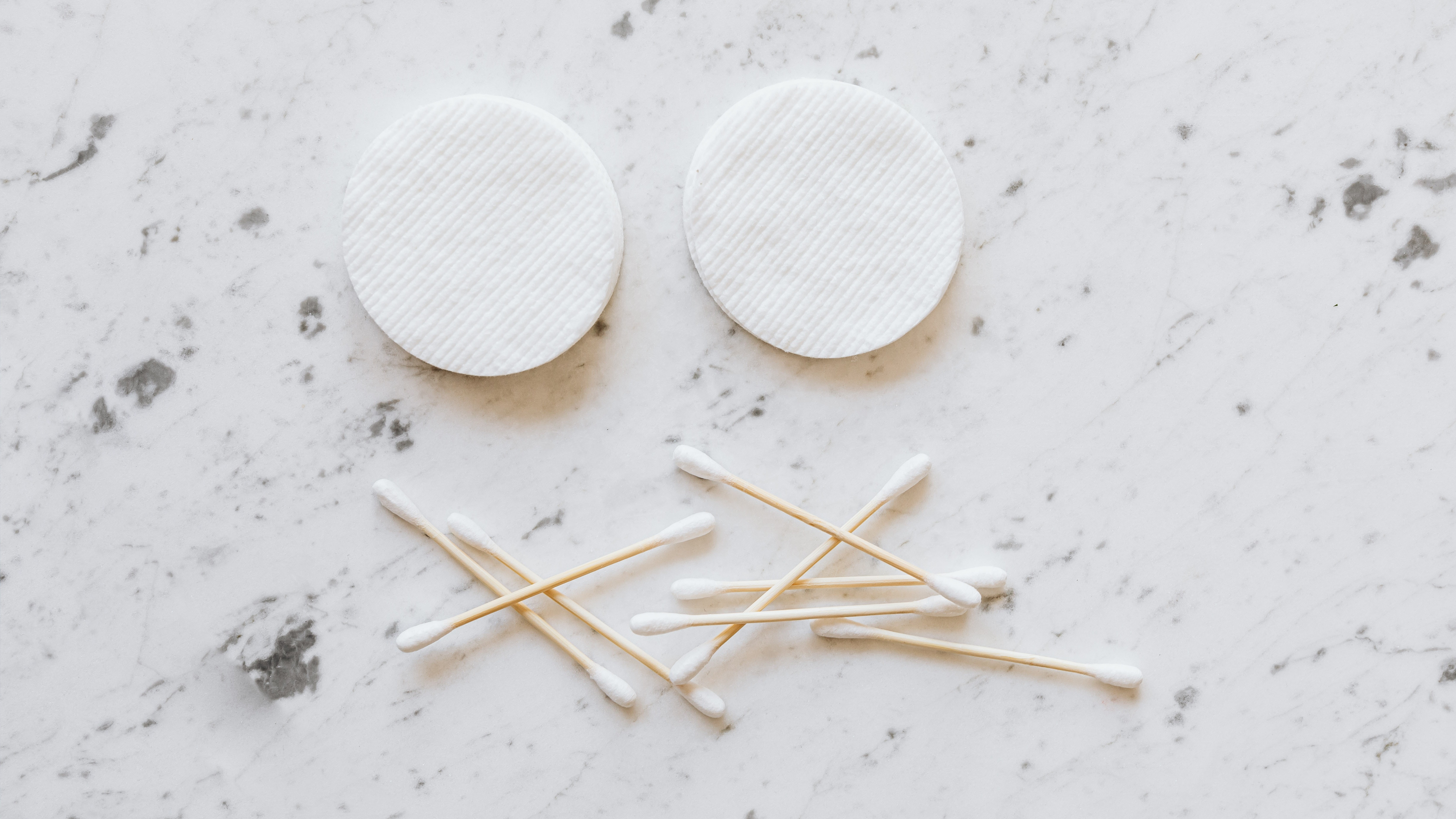
A lot of us use cotton wool or cotton pads almost every day; from cleaning our faces and removing makeup, to applying skin care products, cotton wool is a common necessity for most! However, most of us will put these straight in the bin where they end up in landfill. Some people have in fact tried composting their cotton wool in their food waste bins and have seen some success, however, it's very dependent on what products the cotton wool has been used on.
You can now purchase bamboo cotton buds that are biodegradable, but the best suggestion recommended by many to tackle cotton pad waste is to buy reusable ones! You can purchase these on Amazon for just a few quid and they even come with a handy drawstring bag to wash them in, so you can just pop them in with a wash you're doing anyway without any extra hassle.
Why not take a look next time you run out? It will save you money and help the environment!
Reusable Nappies
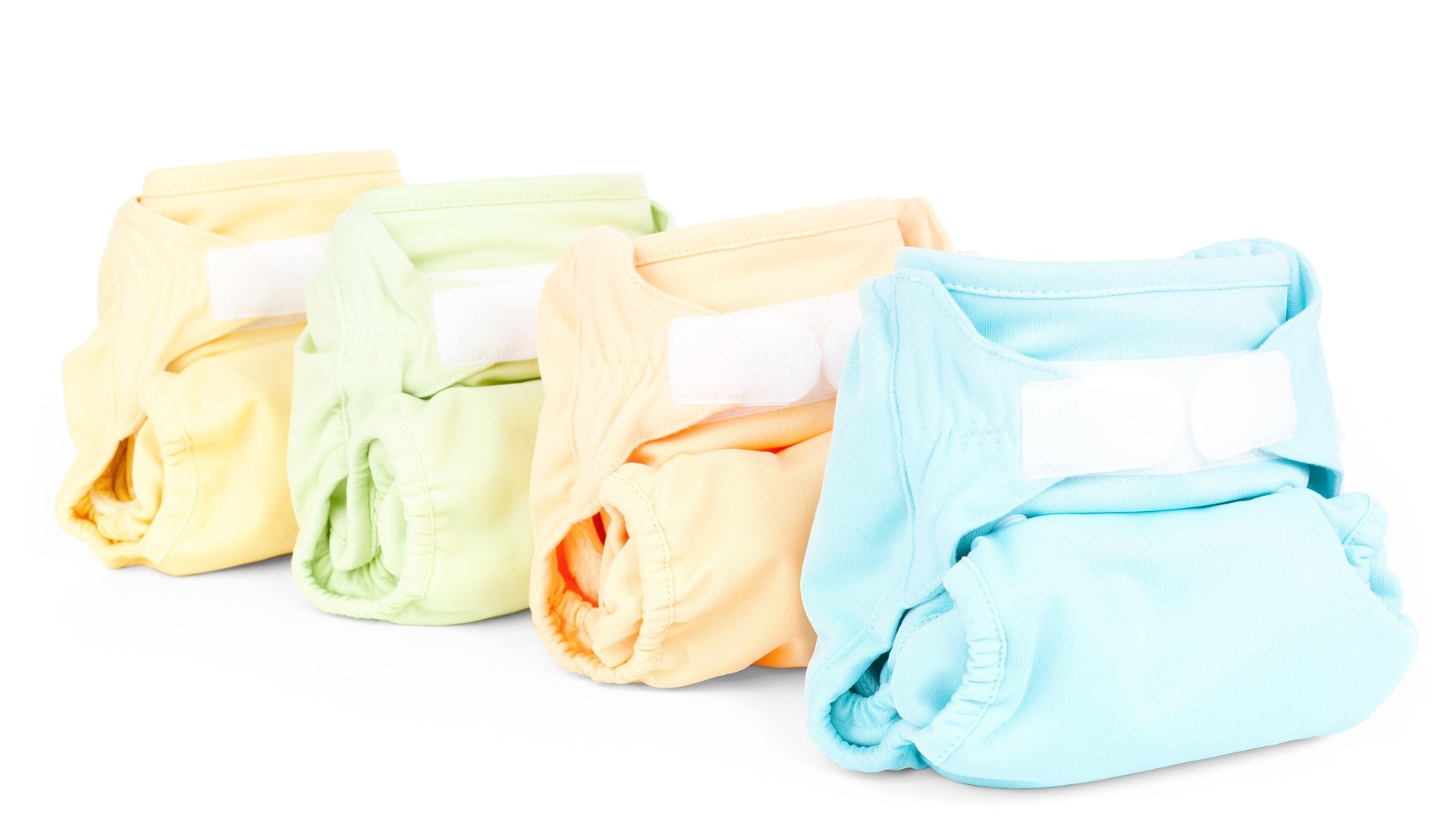
Many parents and guardians often throw their nappies in the bin thinking that they cannot be recycled and that there are no other alternatives, but this is not the case.
Many areas all over the UK are pushing for the implementation of nappy recycling after having seen our neighbours in Wales offering nappy recycling services with NappiCycle; they have now successfully implemented a curbside pick-up in all 22 local authorities in Wales which allows used nappies to be recycled. However, for those of us in England we are still lagging behind with such matters. As a result, there are numerous petitions available for everyone to sign to encourage the implementation of similar recycling services nationwide that can be found online.
For now, a great alternative to single-use nappies can be reusable ones! Many companies have designed various forms of nappies for varying ages to allow parents and guardians to reduce their wastage. You can buy these on sites such as Amazon, Totsbots, JoJo Maman Bebe and even on the Eden Project shop! Many independent shops also offer such products. Why not have a look online today and give a reusable nappy a try? It will save you money as well as reduce waste!
Deodorant
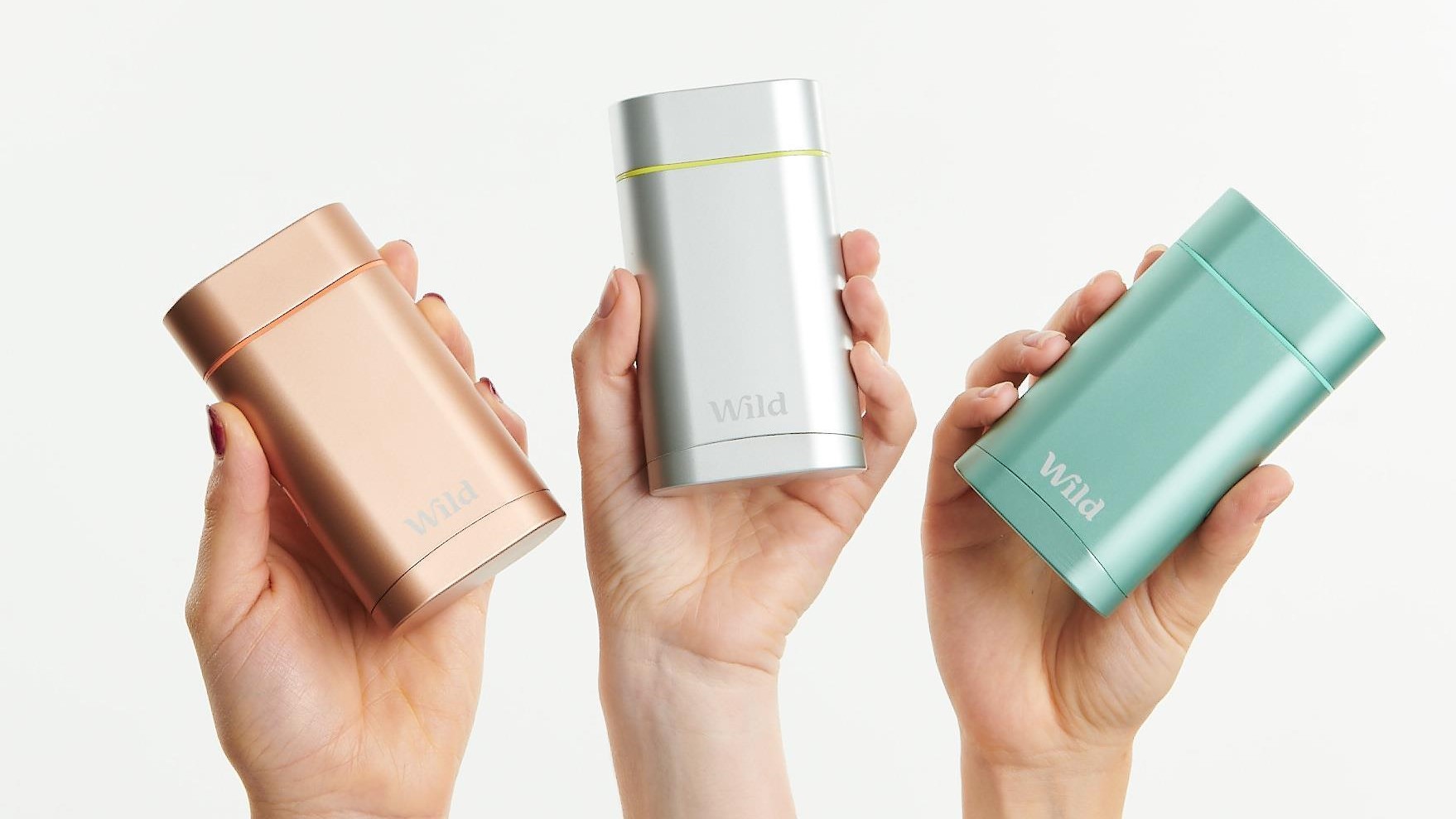
A lot of us who use deodorants may use items which we think have recyclable packaging; however, unfortunately not all deodorant products can be recycled.
That's where new companies such as Wild come in. Wild deodorant offer a to-your-door subscription service that can be cancelled, postponed or altered at anytime, is cruelty free, natural and great for the environment! You start by picking your reusable aluminum case and then select your refills. Each refill comes in plastic-free and compostable packaging so that when you're finished with it you can throw it in your compost bin! For more information on Wild deodorants, click here.
Many other companies also offer this service now and provide eco-friendly packaging alternatives, so why not have a look online today? It can save you money, save you the time of having to go to the shops, and save the planet!








